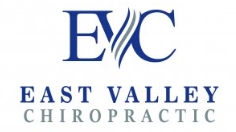What is a slipped disc?
Your spine is made up of individual vertebrae. Between each bone is a disc of cartilage that cushions the bones from each other and protects them during your everyday activities. Each disc consists of a soft jelly-like substance held together by a firmer outer ring. A slipped disc (or herniated disc) happens when the inner part of the disc pushes out through the outer shell. This can be caused by an injury or weakness in that area.
What causes a slipped disc?
Twisting, turning and heavy lifting can all cause a slipped disc. The discs can also weaken with age. If you are overweight, or have weak muscles you are at a higher risk of getting a slipped disc. Herniated discs are also more common with people who have a job that requires lots of heavy lifting.
How do you know if you have a slipped disc?
Slipped discs can be painful as the protruding part of the disc puts increased pressure on nerves and muscles. Because nerves extend far from your spine, the pain you feel may not even be near the area of the slipped disc. The pain can extend to your arms and legs. You may also feel numbness, tingling, or a burning feeling. The only way to know for sure if you have a herniated disk is through imaging. X-rays can determine if there is limited movement, which may be an indicator of a slipped disc. An MRI will confirm if there is a herniated disc and what direction it is.
Treatment options for slipped discs.
When treating herniated discs, the goal is to reduce inflammation and restore movement to the back. Strengthening and stretching back muscles is one way to alleviate pain and heal herniated discs. Decompression and traction will alleviate the pressure on the disc, allowing the inflammation to decrease. Often chiropractors can help alleviate symptoms and repair the spine through chiropractic adjustments. The manipulation of the spine can help take the pressure off of the nerves and restore movement to the spine. While the herniation may not go away, the symptoms can if the swelling and pressure is reduced. If that doesn’t help your doctor may recommend medication for the pain. In extreme cases, surgery may be required.
If you are experiencing pain that you believe may be related to a slipped disc, make an appointment with us. We can work to help you get rid of the pain without invasive surgery.




